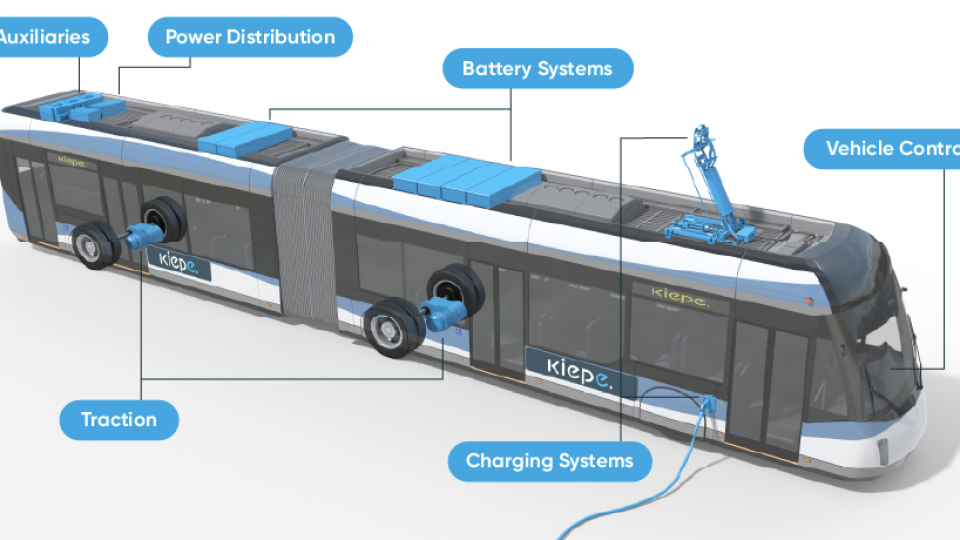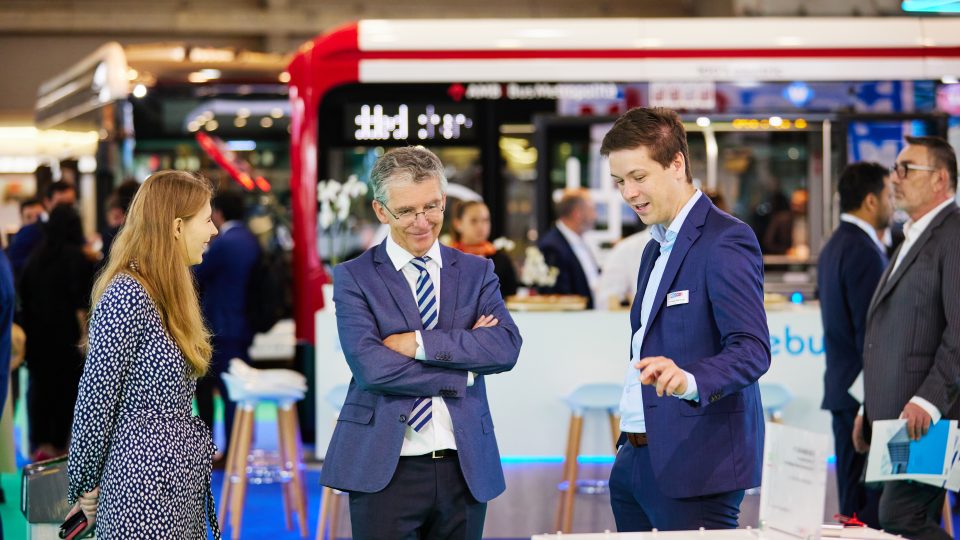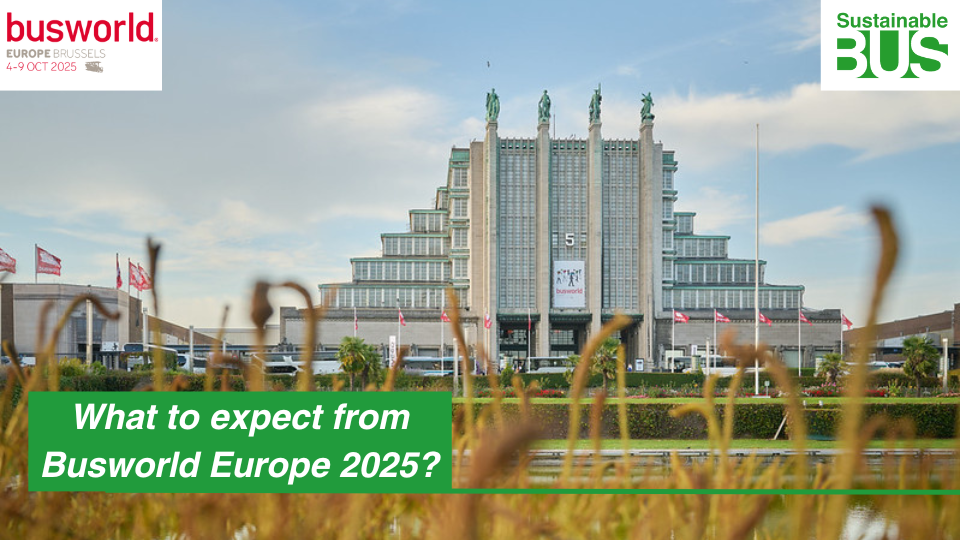Marie-Ange Debon, Keolis’ CEO: PTOs at the test of a paradigm shift
How is the PTO’s role evolving together with the current, profoundly evolving, scenario dominated by global megatrends such as energy transition (nonetheless, just impacted by the Covid crisis)? That is the question underlying the conversation Sustainable Bus had with Keolis’ CEO Marie-Ange Debon, that here underlines her vision regarding the consequences of the Covid outbreak […]

How is the PTO’s role evolving together with the current, profoundly evolving, scenario dominated by global megatrends such as energy transition (nonetheless, just impacted by the Covid crisis)?
That is the question underlying the conversation Sustainable Bus had with Keolis’ CEO Marie-Ange Debon, that here underlines her vision regarding the consequences of the Covid outbreak on mobility patterns, the experience the group has developed concerning deployment of alternative drive buses, the future of public transport services influenced by the plans towards climate neutrality announced by the EU and President Biden in the US.
New energy modes are causing the CAPEX intensity of bus operating contracts to increase dramatically. The vehicles are much more expensive, and these vehicles need to be incorporated within a whole infrastructure, which significantly increases the investments. Absorbing these investments in operating contracts at a reasonable cost is a real challenge and strains operators’ investment capacities
Marie-Ange Debon, Keolis’ CEO
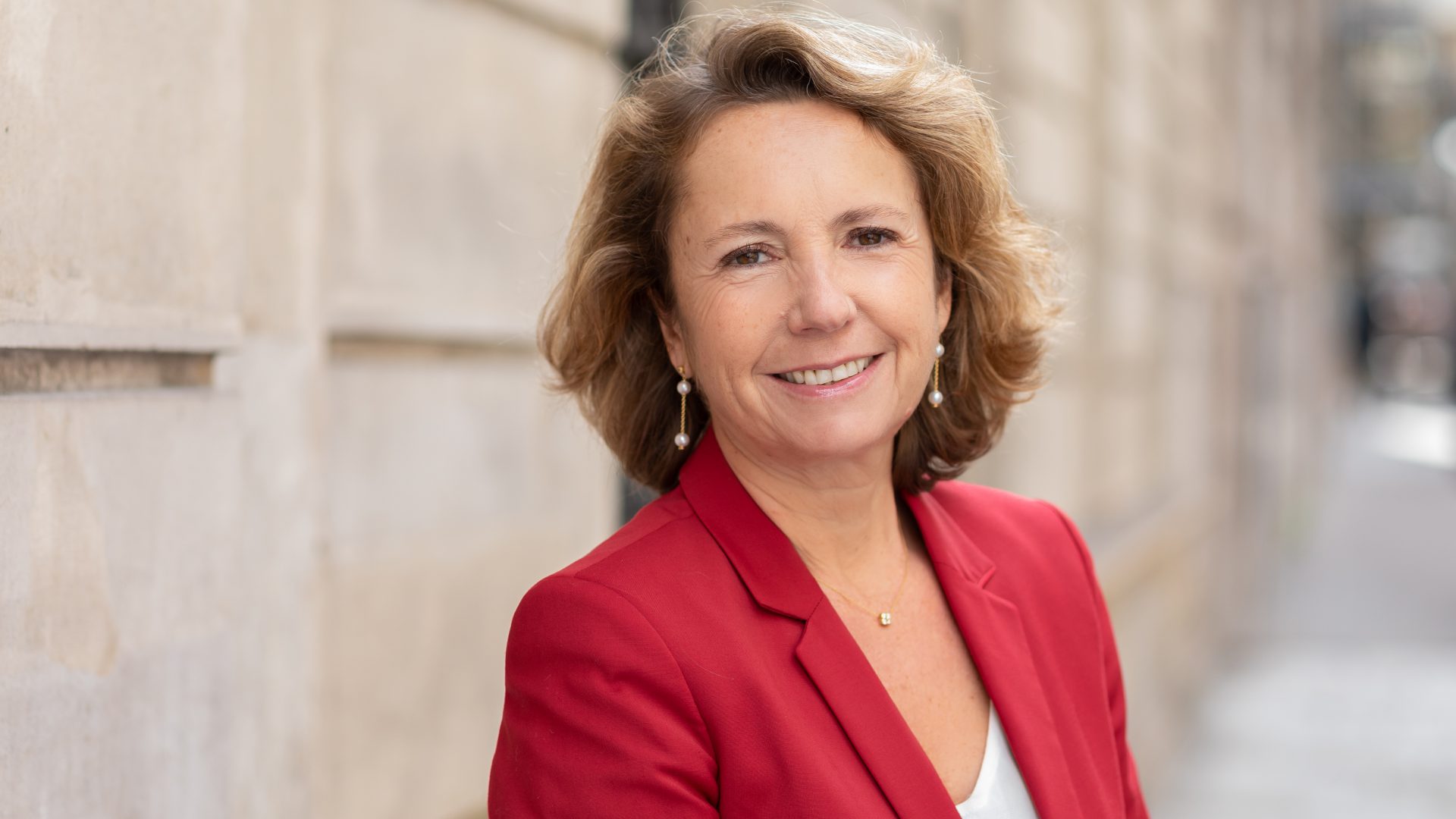
Marie-Ange Debon, Keolis’ CEO: Covid and mobility
The pandemic has changed the pattern of mobility around the world. From the Keolis Group’s vantage point, is the “earthquake” generated by Covid-19 likely to lead to long-term changes in public transport?
«There is no doubt that Covid-19 has had – and continues to have – an impact on our business. Ridership has decreased because of the various governmental restrictions on movement imposed in many countries. Nevertheless, I am convinced that shared mobility is a real answer to the major environmental, social and economic challenges the world is facing today. Shared mobility reduces CO2 emissions, while promoting local jobs and supporting cities and communities. With proper management in terms of health, safety and comfort, I am convinced that ridership will return to former levels».
Today, we operate more than 4,000 vehicles running on alternative energies – electric, natural gas, biogas and hydrogen – representing 20% of our total bus fleet. Our goal is to become the operator of reference in the energy transition.
Marie-Ange Debon, Keolis’ CEO
This year, we seem to have reached a turning point. Which signs of recovery are you observing in the sector, particularly in relation to your group’s business?
«There are signs of recovery. In China, for example, where we operate trams and automated metros in Shanghai, ridership has returned to pre-pandemic levels. In France, in the major cities in which we operate such as Lyon, Lille and Rennes, ridership is on the rise as restrictions ease and curfews are lifted. Elsewhere in Europe, as well as in Australia, we observe the same trend: ridership is growing on a weekly basis.
More of our passengers are working from home now, so we are adapting and managing our service accordingly. I would, however, like to emphasize that the daily commute to and from work does not represent the biggest part of what we do. We also carry passengers for leisure purposes, visiting family, sport and so on. The return to a “new normal” will have a positive impact on the rate at which people return to shared transport. I’m confident that in 2022, ridership will be back at normal levels.
As a public transport operator (PTO), it is our responsibility to ensure that our system guarantees the health, safety and comfort of all our passengers».
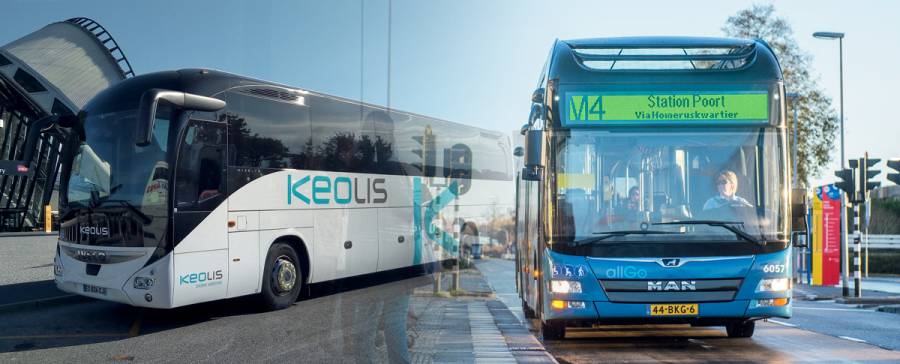
EU and US: public transport in the spotlight
The Biden administration and the EU have launched ambitious plans to transition to a fossil-free society. How do you view the reinforcement of public transport and the acceleration of the energy transition, going forward?
«We are seeing an acceleration in the energy transition as public transport authorities increasingly take steps to convert their fleets to alternative energies.
We were recently awarded two contracts, one in Uppsala in Sweden to operate buses running on alternative energy and another in Sydney in Australia for the management of a large bus fleet featuring 125 e-buses. We are proud to accompany the public transport authorities in their ambition to meet the energy transition challenge and implement carbon-free fleets in cities and communities. Over the past six months, I have seen a real acceleration towards green transport. It plays a key role in the fight against global warming and improves the health and quality of life of citizens.
Biden’s plan is a clear illustration of this trend. It’s an ambitious plan that will help local authorities in the US to fund and implement the transition to sustainable shared mobility and provide a tangible alternative to the use of private cars. This trend is noticeable worldwide, with numerous governments launching plans that demonstrate their commitment to the energy transition, such as the New South Wales government in Australia, which aims to make all buses fully electric by 2030. We were honoured to be awarded a contract in Sydney to contribute to this transition just a few days ago».
We are working on new, rapidly evolving technologies – especially for batteries and hydrogen – which presents a difficulty in projecting the value of these assets a few years down the line. This residual value risk is one of the main obstacles to the widespread deployment of electric fleets. Today, the operator is the one that usually assumes this risk, but new arrangements need to be developed to better split the risk between operators, PTAs, manufacturers and funders
Marie-Ange Debon, Keolis’ CEO
Keolis group at the test of energy transition
Can you outline the experience developed by your group with regard to the energy transition?
«We have earned the recognition of our public transport authority partners for our expertise in operating sustainable modes of transport. We have been operating the metro for 40 years and are the world’s leading tram operator, both of which are electrified modes of transport.
As for electric buses, we have deployed a series of large fleets within a six-month timeframe, including in the Netherlands, where we now operate the largest electric bus fleet in Europe, and in Bergen in Norway, where we operate 102 e-buses. These large fleets allow us to tailor our expertise to local realities, and therefore accompany the public transport authorities in the best way possible.
Today, we operate more than 4,000 vehicles running on alternative energies – electric, natural gas, biogas and hydrogen – representing 20% of our total bus fleet. Our goal is to become the operator of reference in the energy transition.
Our priorities include growing the appeal of shared mobility by advising and accompanying our public transport authority partners in converting their diesel fleets to vehicles that run on alternative fuels.
Another priority is to step up our contribution to economic development and social inclusion in all the regions where we operate, by creating jobs and developing new services. This is an essential commitment to make if we are to contribute to the post-pandemic recovery in a meaningful way».
With the transition to e-buses, public transport companies are often more looking for partners than just for suppliers (i.e. manufacturers that not only provide rolling stock, but also feasibility studies, consulting, etc.). What message would you share with industry players today?
«We are agnostic, so to speak, when it comes to the choice of energy mode. Our duty is to advise our customers on finding and adopting the best solution in light of their specific needs and requirements.
Our experience suggests that the preferred manufacturers are often those offering the most effective and competitively-priced solutions that take into account both the PTO’s contractual conditions and the residual value risks of the assets».
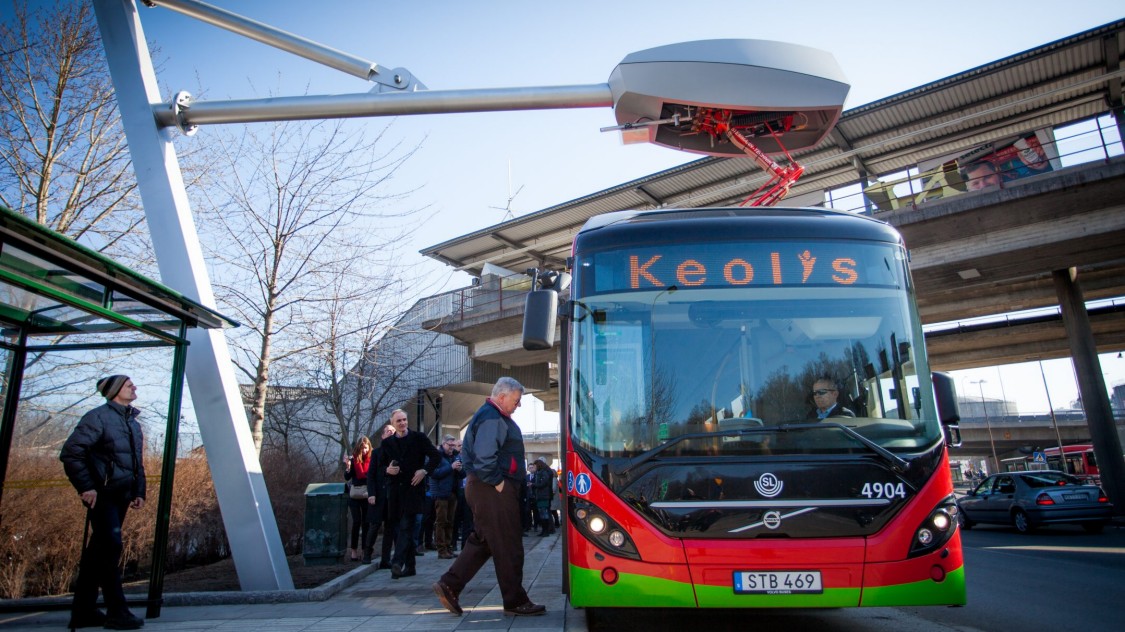
Public transport, private operators
During the crisis, we witnessed a distinct shift towards public investments, with the public sector taking back a direct role in crucial sectors. Do you think this will have an impact on the future business of private-public transport companies?
«We are witnessing a move towards privatization in many of our markets. By way of example, in France, the Greater Paris region is opening up to competition, with buses in the short term and heavier modes in the longer term. In urban areas, we saw the recent privatization of the bus network in Thionville (eastern France), for which we were awarded the operation.
In Australia, Adelaide’s commuter rail network was privatized, and the operation awarded to Keolis. Liberalisation of the bus market is also underway with a planned increase of the open market from 30% to 65% in five years. This was the context in which we were awarded the operation of a bus network in Sydney at the end of May.
The trend is also noticeable in the United States, with a gradual privatisation of networks in this huge market with a high development potential».
Our experience suggests that the preferred manufacturers are often those offering the most effective and competitively-priced solutions that take into account both the PTO’s contractual conditions and the residual value risks of the assets
Marie-Ange Debon, Keolis’ CEO
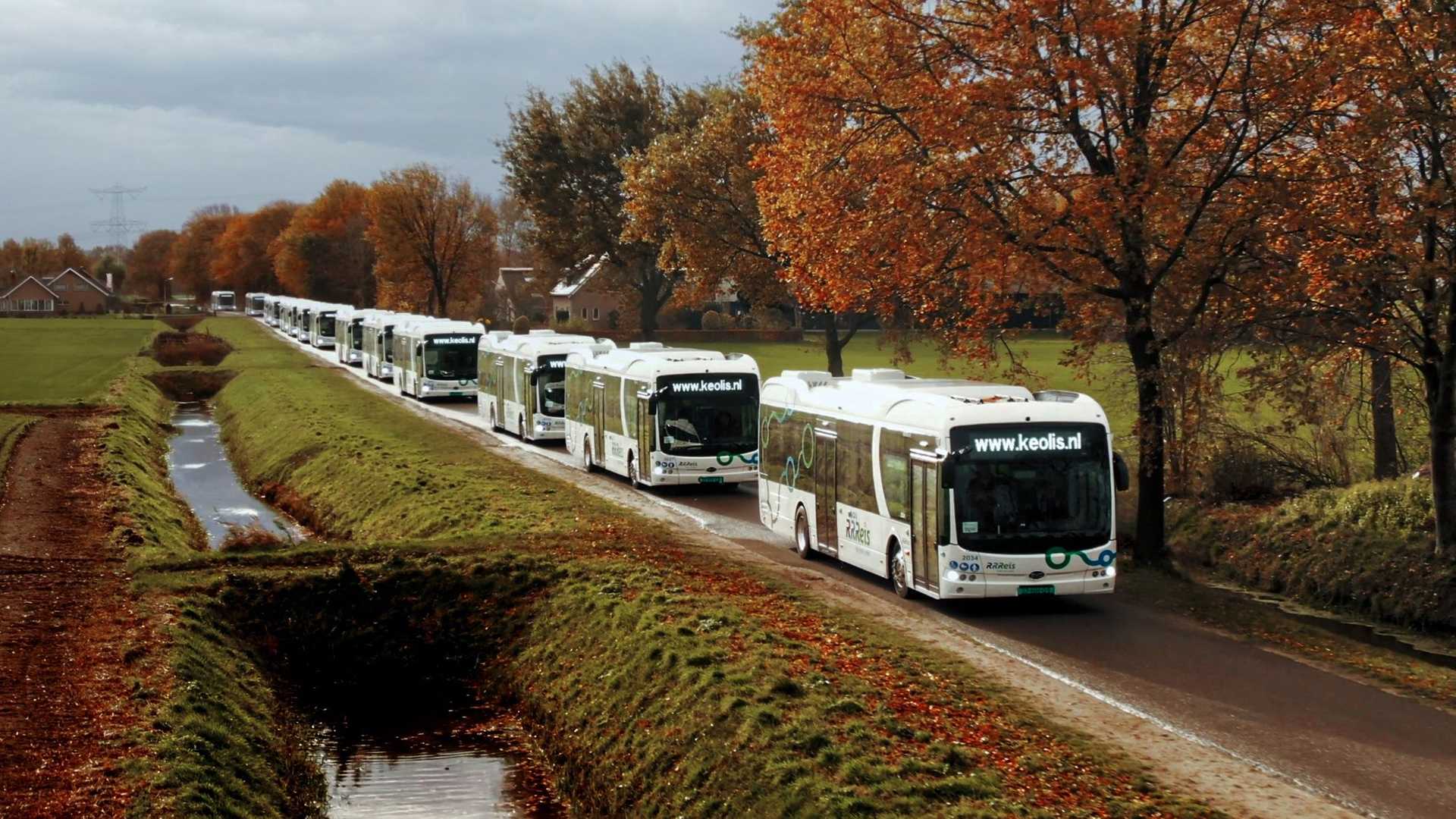
At a recent webinar for the Sustainable Bus Tour 2021, which features Keolis as a mobility partner, Bruno Lapeyrie, Keolis Director, Center of Excellence Energy Transition-Bus, said that innovative financial schemes are needed to make the large-scale deployment of e-buses sustainable for private-public transport companies’ balance sheets. What’s your opinion on this? There’s a lot of talk about public-private partnerships and project financing…
«It is an important issue. Firstly, new energy modes are causing the CAPEX intensity of bus operating contracts to increase dramatically. The vehicles are much more expensive, and these vehicles need to be incorporated within a whole infrastructure, which significantly increases the investments. Absorbing these investments in operating contracts at a reasonable cost is a real challenge and strains operators’ investment capacities.
In addition, we are working on new, rapidly evolving technologies – especially for batteries and hydrogen – which presents a difficulty in projecting the value of these assets a few years down the line. This residual value risk is one of the main obstacles to the widespread deployment of electric fleets. Today, the operator is the one that usually assumes this risk, but new arrangements need to be developed to better split the risk between operators, PTAs, manufacturers and funders».
Marie-Ange Debon: autonomous driving around the corner…
The energy transition and carbon-free mobility is a much-discussed topic today. But another revolution is just around the corner: autonomous driving. We’re already seeing Keolis Group solutions being deployed around the world…
«It’s an efficient mode of transport for the so-called first and last mile, and one which fully complements public transport and can be rapidly integrated into the existing network. We have conducted tests in Lyon for four years with our PTA partner Sytral and Navya, the manufacturer. Since then, we’ve been testing autonomous vehicles in other French cities as well as in Australia, Canada, Sweden, the UK and the US. In total we have carried more than 200,000 passengers.
We continue to test the technologies that will enable us to take the step to full autonomy in the safest manner. A few months ago, we conducted tests in Stockholm with our partners which used 5G technology to remotely control and supervise autonomous shuttles. We are now conducting tests on driverless shuttles at our test centre in Châteauroux using Navya, EasyMile and Local Motors vehicles.
So yes, we are a pioneer in autonomous shuttles, which is fully aligned with our Corporate Purpose, namely to enhance everyday life in cities and communities by imagining and operating safe, smart and sustainable mobility solutions accessible to each and everyone».


